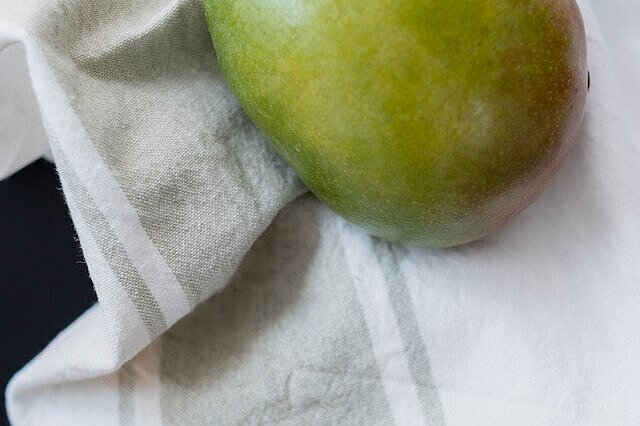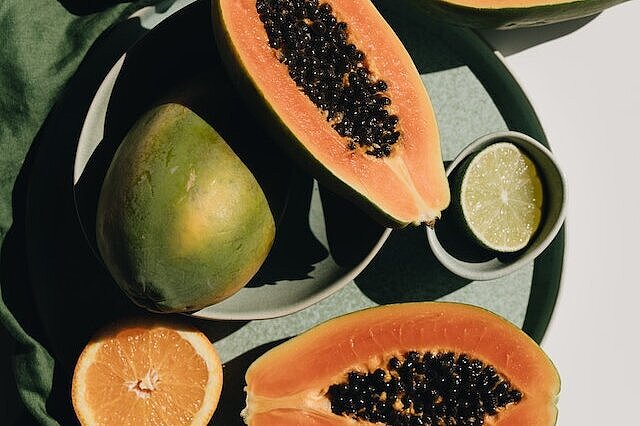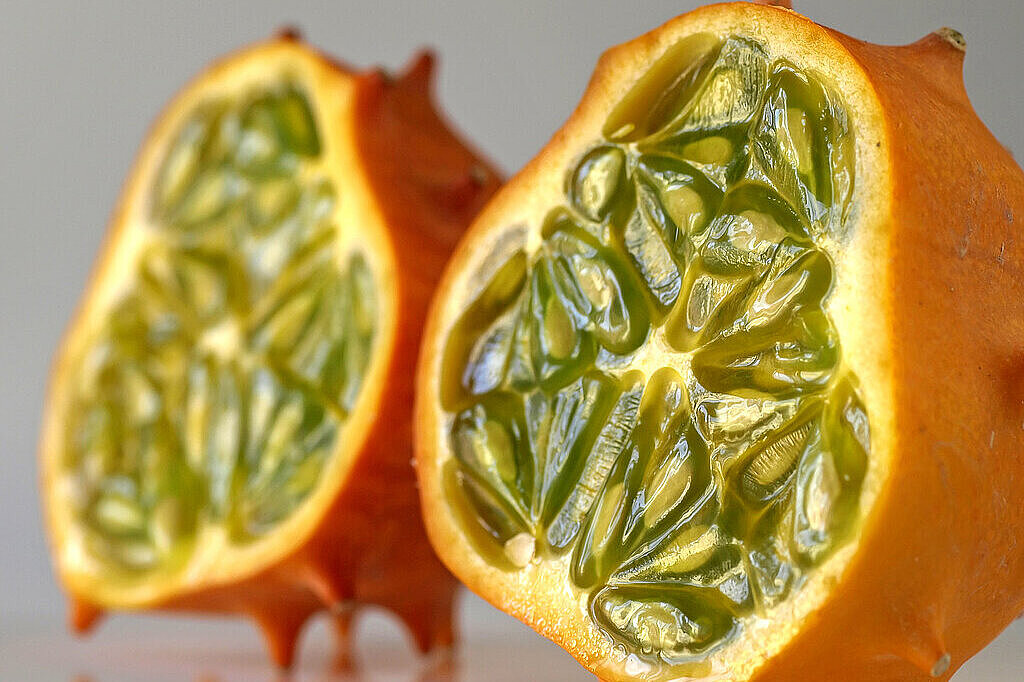Dragon fruit

What is dragon fruit?
Dragon fruit comes from various species of cactus, mainly native to South America but also cultivated in other parts of the world. It is known for its bright pink skin and blotchy white flesh speckled with small, black, edible seeds. Dragon fruit has a mild flavor that is often described as a cross between a kiwi and a pear.
Benefits of dragon fruit for dogs
Rich in nutrients
Dragon fruit is rich in vitamin C, vitamin B, calcium, iron, phosphorus and antioxidants, all of which can contribute to a dog's overall health. Antioxidants play an important role in fighting free radicals, which can help prevent inflammation and strengthen the immune system.
Digestive support
The fiber contained in dragon fruit can aid digestion and contribute to a healthy gut. A healthy gut is crucial for overall health, as it not only regulates food absorption and elimination, but also supports the immune system.
Hydration
Dragon fruit is largely made up of water, which makes it an excellent source of hydration, especially on hot days or after exercise. Good hydration is important for maintaining kidney function and your dog's overall health.
Disadvantages and risks of dragon fruit for dogs
Potential allergies
Although allergies to dragon fruit are rare in dogs, it is important to note that each dog is individual and can potentially have an allergic reaction to new foods. Symptoms of an allergic reaction can include skin rash, itching and, in severe cases, breathing difficulties.
Gastrointestinal complaints
Excessive consumption of dragon fruit can cause gastrointestinal distress in some dogs, including diarrhea or bloating, especially when it is first introduced. It is advisable to introduce any new food slowly and in small amounts.
Sugar content
Although the natural sugars in dragon fruit are not harmful, the amount of fructose a dog consumes should be limited to minimize the risk of weight gain and diabetes.
Safety measures and feeding recommendations
If you are considering giving your dog dragon fruit, start with small amounts and observe how he reacts to it. Make sure the fruit is fresh and remove the skin as it can be difficult to digest. As with any treat, dragon fruit should only make up a small part of your dog's daily calorie intake and should not replace the balanced diet they need.
Dragon fruit can be a healthy and hydrating addition to your dog's diet, as long as it is fed in moderation. Its nutrients and antioxidants can support health, while its high water content contributes to hydration. However, it's important to carefully monitor the introduction of new foods into your dog's diet and watch for signs of allergies or gastrointestinal distress. With the right care, dragon fruit can be a safe and tasty change in your four-legged friend's diet.
If you notice any signs of hypersensitivity or poisoning in your dog, you should see your vet immediately. We are not a substitute for a vet, but we try to be as accurate as possible. Every dog reacts differently and we recommend you get a second opinion or consult your vet if in doubt.
Stay healthy and take good care of your four-legged friend!😊
Similar to Dragon fruit
What is a mango? A mango is a stone fruit that grows on a tree. It has a yellow to orange color and a sweet taste. The skin of the mango is not edible and must be removed. There is a large pit inside...
Papaya (Carica papaya) is the only species of the plant genus Carica within the melon tree family (Caricaceae). The plant is often referred to as a tree, but is actually a large, herbaceous plant...
Guava is a tropical fruit that originates from Central America. It is known for its sweet, sometimes slightly sour taste and its soft, edible skin. Guava is rich in vitamins and nutrients, making it...
Kiwano has a number of positive properties that make it a healthy food supplement for dogs. Firstly, it contains a lot of water (about 90 percent) and fiber, which is good for digestion. Secondly,...



